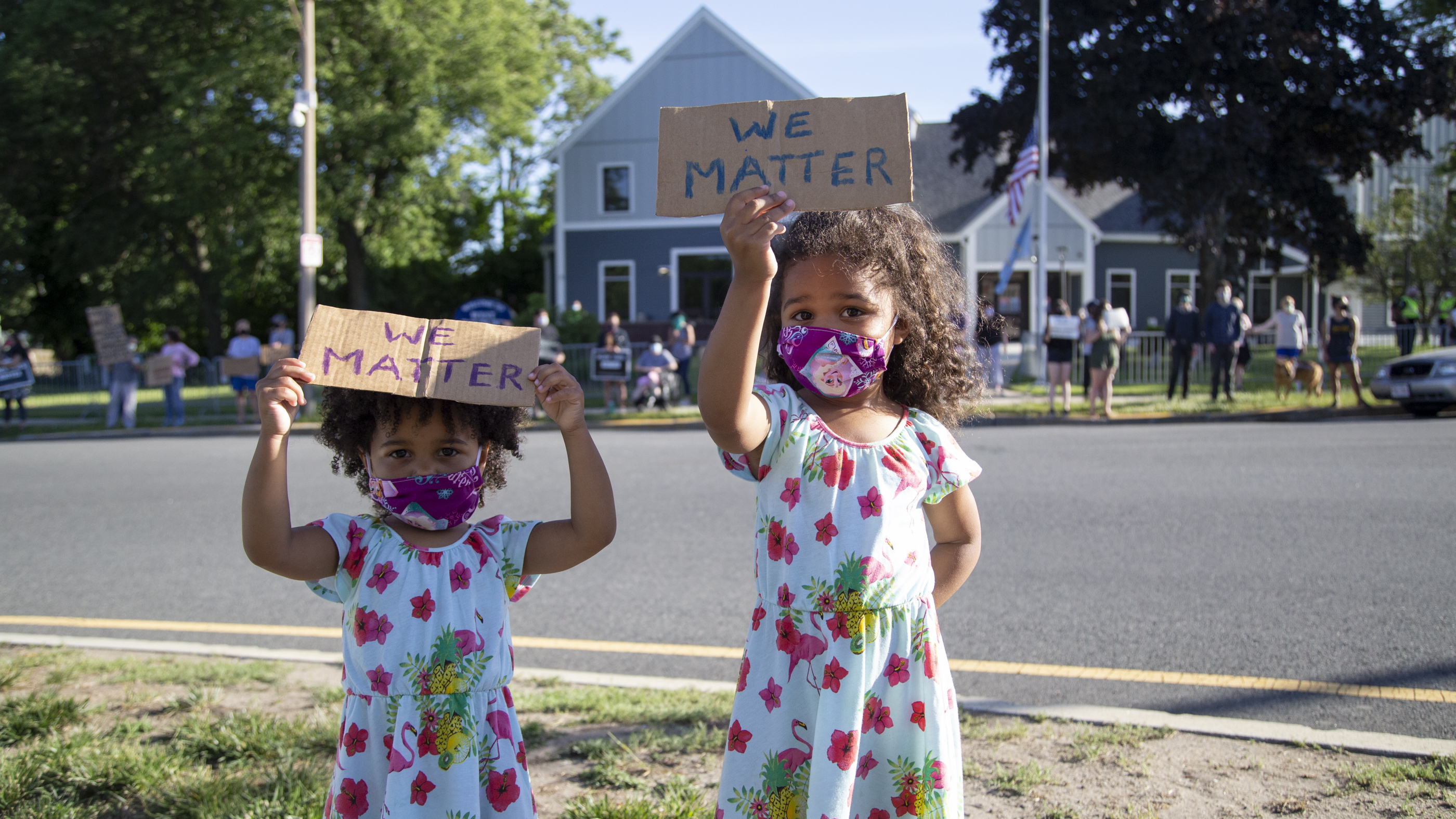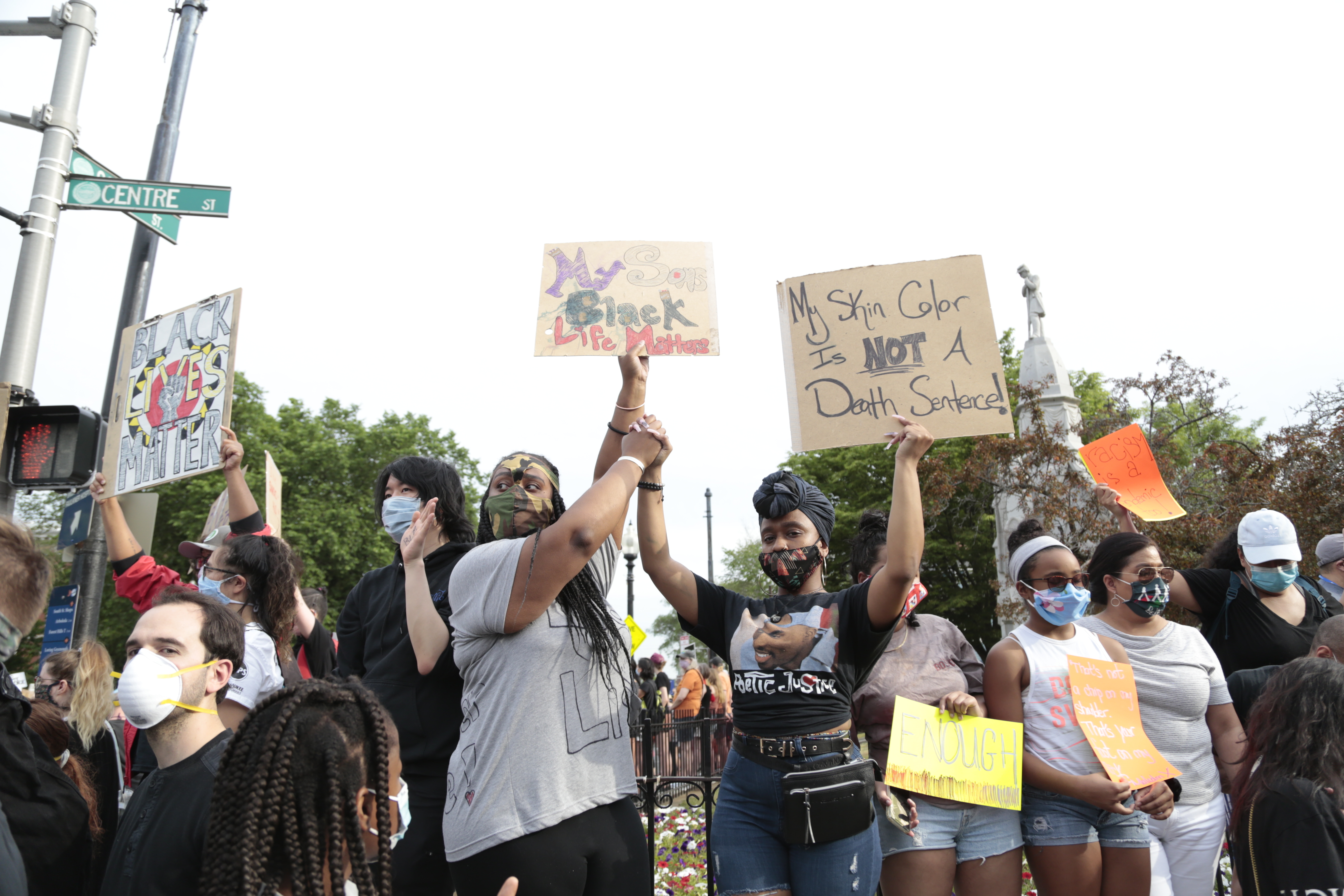Thousands of people continue to protest across Massachusetts, denouncing structural racism and police brutality against Black people in the wake of George Floyd's death over two weeks ago.
A group of young activists held a March to Defund Police from Roxbury's Nubian Square to Boston City Hall Wednesday, calling for at least a 10% reduction in the police department's budget and reallocating that $41 million or more to other parts of the city budget.
Ahead of the march, protesters shared their stories with NBC10 Boston, like others did in Jamaica Plain on Thursday and in West Roxbury Monday. They talked about the hypocrisy of saying "all lives matter" but not "Black lives matter," their personal experience with discrimination, emphasized the need to defund police and more.
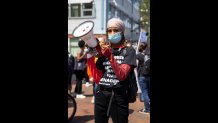
Organizer Vikiana Petit-Homme of Hyde Park, via Haiti
"We're ready for change and I think we're past the rhetoric. We're just about the action right now and so what you see is a bunch of young organizers coming together and demanding for what's right and demanding what their communities need. So, whatever way I can support and help uplift that, that's what I'm gonna do."
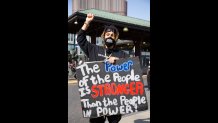
Jasper Landrum of Grafton, via Dorchester
"Make a change. People just need to get up off the couch. I understand that sometimes change is different, but I challenge everyone to try to open up and do new things and try new things and get on that uncomfortability, because when you're a Black person in this world and you're just trying to walk around without being bothered, that right there is uncomfortable for us because those are the same people that we're supposed to ask for protection."
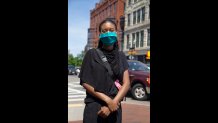
Organizer Queen-Cheyenne Wade of Greater Boston
“I think it's really important that everybody in these communities is taking a stand for each other, because that is the only way that we're gonna have change– is through solidarity, through caring, through love. But also through all of us standing together to say something is not right, you know, for these people that are being oppressed and hurt every single day. We all need to stand up and say that, you know, we don't take this from anybody. I think that's really important."
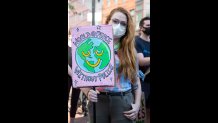
Dazirae Reynhart of Quincy
"If you keep protesting against Black Lives Matter by saying, "all lives matter," then you really don't understand the purpose of all lives matter, because one person and one group of people doesn't stand above the rest and by negating the fact that– you're saying Black lives don't matter by saying all lives matter because that's what's more important right now. Obviously all lives matter but one race can't matter until all of them do. It's not pitting one person against the other, it's saying that we need equality and we need equity and we need to balance out the views on how people see everyone."
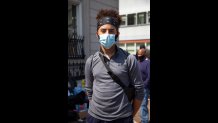
Ali Mounkary of Waltham
"I've been seeing a lot of scary statistics about the BPD: how much money they get and how much of that money could be used to enrich our communities. And that's basically why I'm here today, to fight for that and divest, defund police."
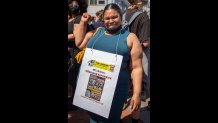
Judy Davis of Dorchester
"People that are against this protest, you should reconsider yourself, because you're actually paying to take away lives and it's the one thing that you can't get back. And it's been going on for over 1,600 years, not just here in America — globally. You cannot be proud of yourself as a person and condone genocide and massacres of people just because of the color of their skin. If you're one of those people that's like, "all lives matter," it's okay — all lives matter, but all lives don't matter until Black lives matter. Because if all lives matter– I don't see white people on a day-to-day basis talk about, 'My son never came home.'"
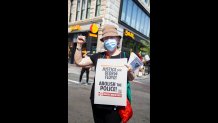
Maureen Skehan of Roslindale
"We're dealing with a triple pandemic. The first being racist police violence and white supremacy rooted in a system that's all about profit, not people's needs. Two is COVID. Three is millions of unemployed people, workers who may not get their jobs back. And, you know, that's where the struggle is moving, I think, to unite all these issues."
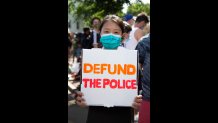
Cherry Lau of Allston, via Hong Kong
"This is 2020 — it's really upsetting that this is still continuing to happen. No life should be just gone over police violence and we're still really ass-backwards with what's going on right now. We cannot let this happen again — not just the police system — it's just injustice and racism that is still going every day. And we need to stop and educate the generations after us too on this, because this is enough."
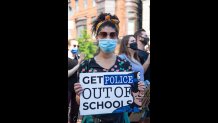
Kendra Ford of Dorchester
"As an educator, I've always been told to be open minded ... when you see people being murdered on television, there isn't really a discussion. There is no discussion, somebody's life being taken on national television was just wrong."
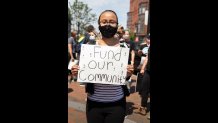
Larissa Bittencourt of Watertown
"In our education system all over the United States, we have done an incredible job at white-washing history and, as a society, we've conformed to not talking about things that make us uncomfortable. But I think it's super important, even for parents of a young kid, teach your children. It's important that we all know the realities and do your research. I mean, there's no excuse at this point. There's Google, there's books. People need to just do their research."
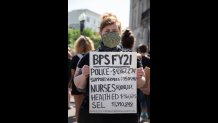
Aimee Belanger of Everett, speaking to fellow teachers
"Don't let them wonder. Don't let them wonder if you look at them the way that the news looks at them. Don't let them wonder if you look at them the way that the president looks at them. Make sure that when they walk in your room, they know that you know that they belong there. If you are teaching in someone else's community, where someone else lives, you'd better make it clear that the students who are there, who live there, belong there and are welcomed and are treasured."
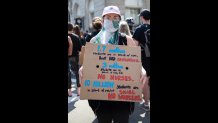
Kelly Flores, 26, Jamaican Plain via Texas
"Our students have a lot going on at home that we may not even know about going into school, like taking care of family members or younger siblings. They just have things going on that we may have no idea about, and they're not getting that support at home and school is their safe place so we should be able to provide that for them."
Watch the footage from Part I and Part II of our project:

